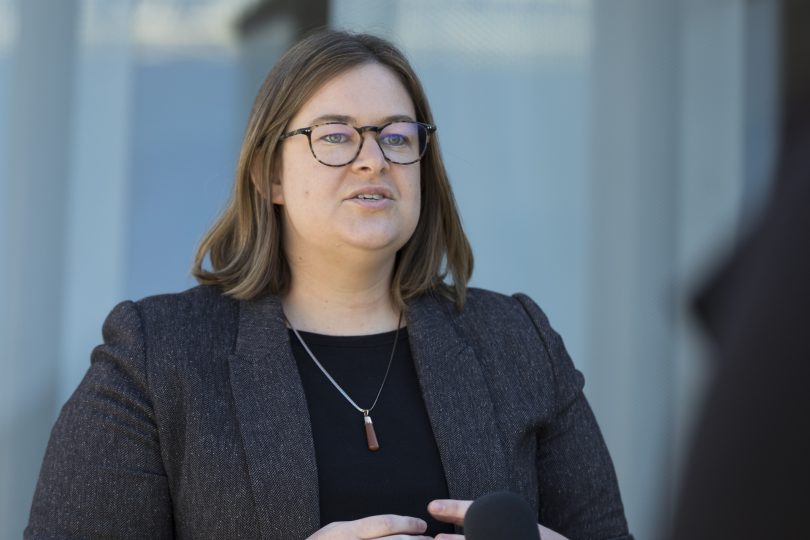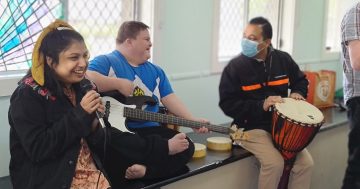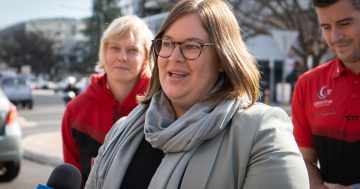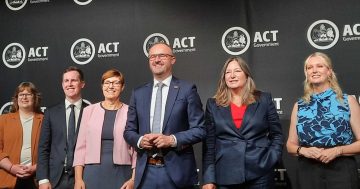
Suzanne Orr thought she would never speak about her autoimmune disorder for fear it would be used against her. Photo: Michelle Kroll.
Most people wouldn’t describe themselves as being “very relieved” after being diagnosed with an autoimmune disorder, but local politician Suzanne Orr was because, until that she got that call from her doctor, she thought she had cancer.
Ms Orr was diagnosed with Immune Thrombocytopenia in 2010.
The rare disease is understood to affect three in 100,000 adults in Australia every year and while little is yet understood about it, it’s commonly accepted to occur when the immune system starts attacking your platelets which can lead to severe bleeding in the body.”
Looking back now, she accepts the cliche and admits that moment changed her life.
“I would go into the Hematology-Oncology Ward for my transfusions. I’d see a lady receiving chemotherapy with her infant daughter on her lap and an elderly patient who was quite unwell lying on a bed. And then I’d look across the room and see a person handcuffed with a police officer with them, and it just struck me quite vividly that anyone can get sick,” Ms Orr said.
In the months that followed, Ms Orr’s body didn’t respond to any of the treatments and she says she became “quite ill”.
But nothing seemed to make a difference.
Until one day, her body “spontaneously healed”.
“My specialist said to me they didn’t know what was going on as none of the treatments had worked, and they warned I could be back in the same position again in under a year,” she remembers.
In 2020, the same year as the bushfires, the hailstorm, the arrival of the pandemic and a local election, Ms Orr’s health did take a turn for the worse.
“I was hesitant to let people see me … when my symptoms were bad,” she told the Legislative Assembly earlier this week when delivering her adjournment speech.
For the most part, Ms Orr’s disorder doesn’t require any medical intervention, just regular monitoring of her platelet count.
But living with an autoimmune disorder and its uncertainty is mentally taxing, too.
Initially, Ms Orr thought she would never speak publicly about her diagnosis, nor would she go on the public record about it, for fear it would be used as political capital against her.
“I was advised very early on in my career to not talk about my health because people said it would be used against me as a sign of weakness,” Ms Orr says.
“I took that advice because I was new to politics.”
Now, however, she’s of a different mindset and is hopeful that sharing her own story and journey can help encourage others to do the same and break down some common misconceptions about them.
In the US, every March is used to raise awareness of autoimmune disorders and their impact on people’s lives.
It’s believed 5 per cent of Australians are affected by them, yet Ms Orr says it’s something the community still doesn’t know much about, nor are they spoken about often.
“After my diagnosis, I googled my condition and got tax advice – there was literally no information available,” she explains.
While that has changed now, Ms Orr notes it’s predominantly overseas information and there isn’t much research being done locally into the 80 or so autoimmune disorders that exist.
“It got me thinking that maybe we should be talking about this because I surely can’t be the only person who needs more information – and I guess I want people to know they are not alone.”
Ms Orr, who has been a Yerrabi MLA since 2016, has also come to appreciate that she has a platform not everyone else shares.
“If I can’t feel comfortable talking about something that should actually be pretty straightforward to talk about – imagine who else doesn’t feel comfortable?” she asks.





















